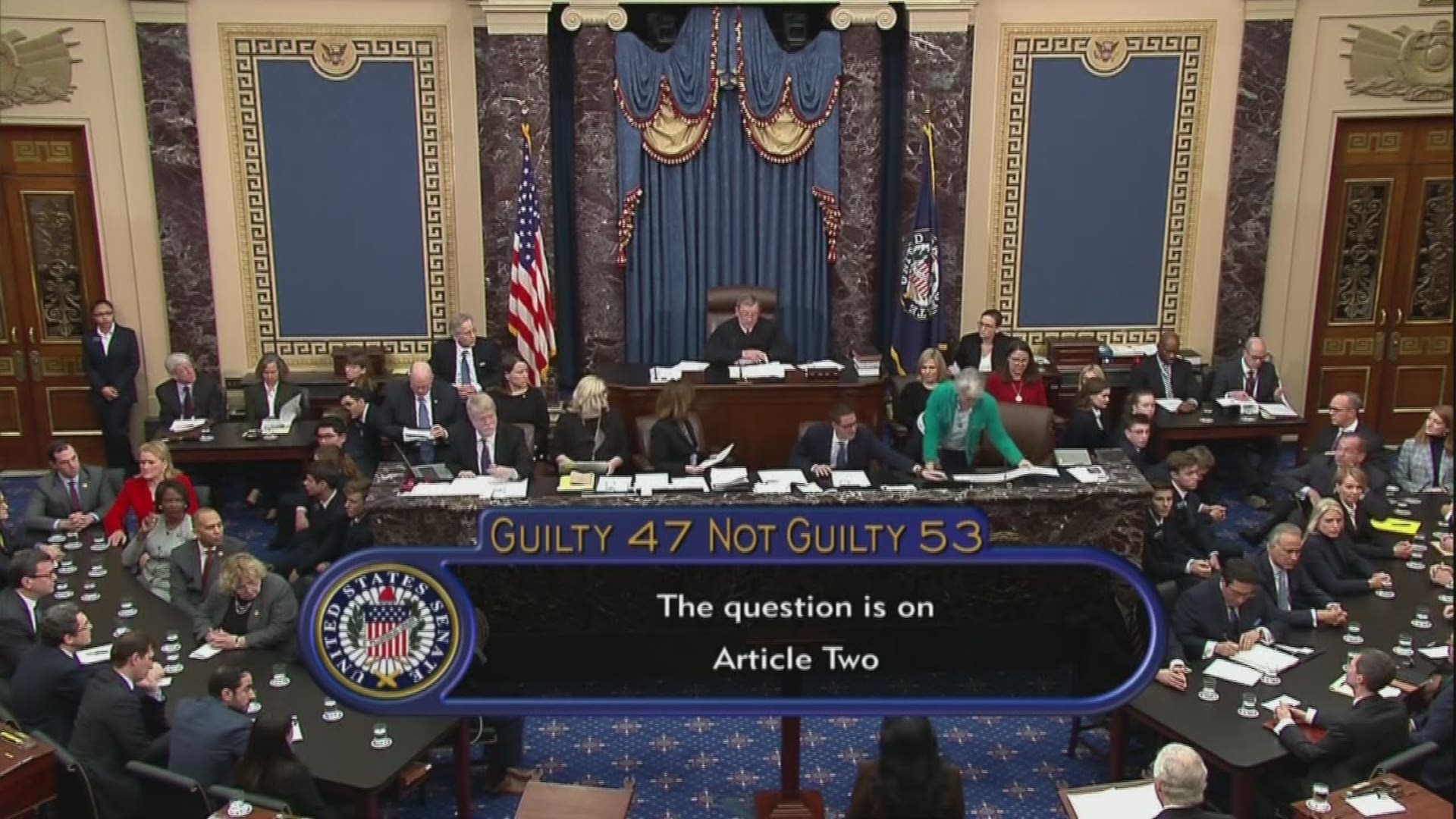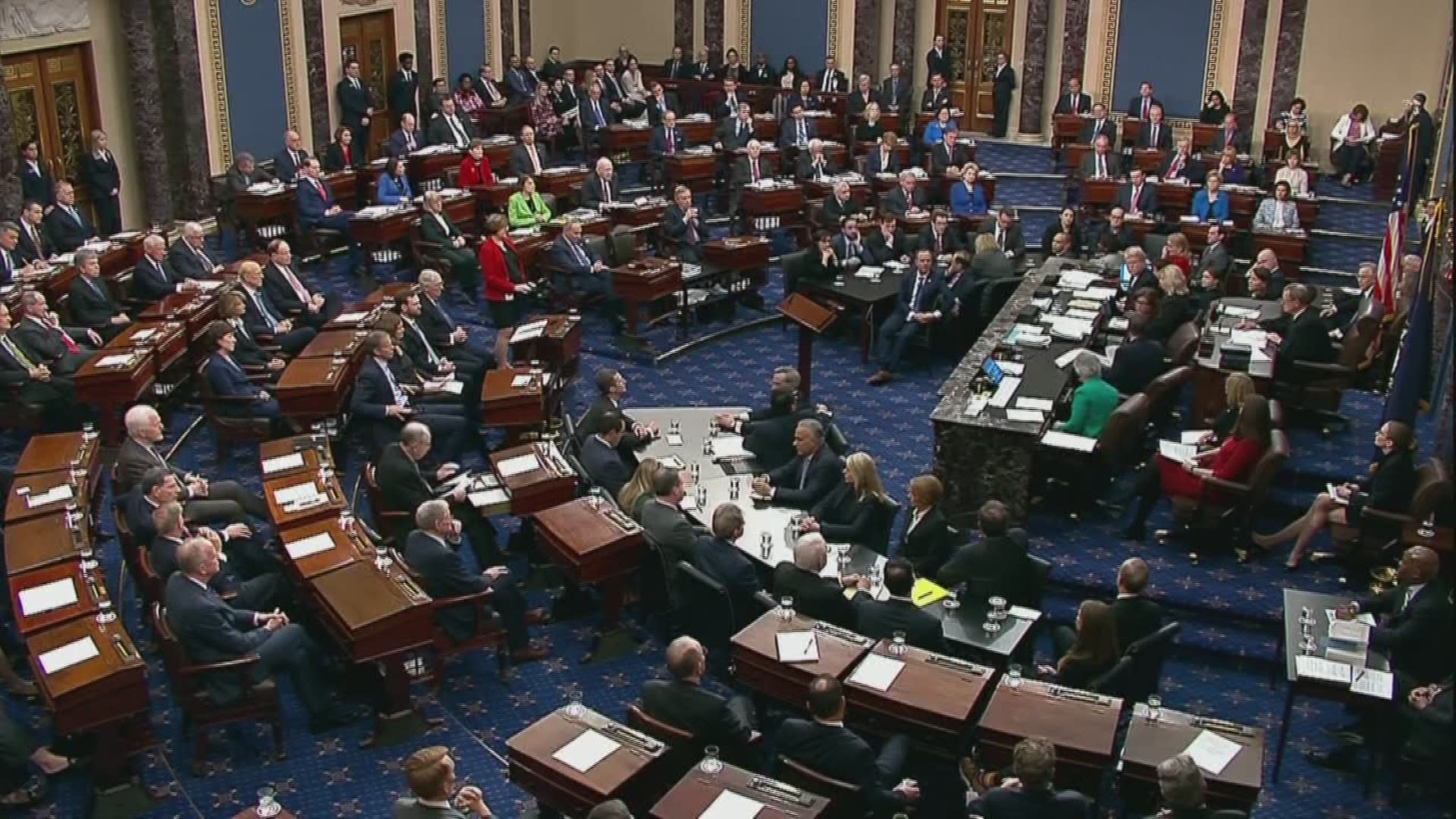WASHINGTON — President Donald Trump has been acquitted by the Senate of both charges of impeachment Wednesday afternoon.
The final vote count on the first charge came to 48 guilty, 52 not guilty on the first article of impeachment. On the vote for the second article of impeachment, the count came to 47 guilty, 53 not guilty.
Republicans hold a 53-47 majority in the Senate, which made any effort to remove Trump unlikely. The support of at least two-thirds of the Senate, or 67 senators, was needed to convict and remove Trump from office.
The vote brought an end to only the third presidential impeachment trial in American history.
Utah Sen. Mitt Romney was the only Republican to break from his party. He voted to convict the president on the first charge, abuse of power.
Romney, along with Susan Collins of Maine also voted last week in favor of allowing new witnesses and documents at the trial. It was not enough as Republicans were able to block it, 51-49.
Collins however said Tuesday she would not vote to convict Trump.
Ahead of Wednesday's vote, Romney spoke on the Senate floor about his decision and appeared to choke up as he spoke of his deep faith and “oath before God” demanding that he vote for impeachment.
Some Republican senators, like Lamar Alexander of Tennessee, last week acquiesced that Trump did what he is accused of, but said they wouldn't vote to remove him from office.
Sen. Joe Manchin, a Democrat from West Virginia, had floated the idea of censure. It left some wondering if the centrist would join Republicans in acquitting Trump, but in the end he joined Democrats in voting to convict.
House Democrats argued during the trial that Trump's abuse of presidential power was unprecedented when he held up nearly $400 million in military aid to Ukraine in exchange for an announcement by that country to investigate potential Democratic presidential nominee Joe Biden. The House probe was launched after it was learned Trump asked President Volodymyr Zelensky for the "favor" during a July 25 phone call. The aid that was held was seen as vital for Ukraine as it battles neighboring Russia.
The House argued that Trump attempted to use the power of the Oval Office to pressure a foreign power to help him ensure his re-election in November. House managers warned that he will be more emboldened to try again if acquitted.
Trump's legal team countered with multiple arguments and ultimately concluded that what the president did does not rise to the level of removing him from office.
Throughout the investigation, Trump argued it was a "perfect phone call" and that people should "read the transcript." The White House released abbreviated notes about the call but never released the transcript verbatim.
Trump did not mention impeachment as he gave his State of the Union address before Congress Tuesday.
The end of the trial will also be significant for three of the jurors. Senators Bernie Sanders of Vermont, Elizabeth Warren of Massachusetts and Michael Bennet of Colorado are running for the Democratic presidential nomination. They have been mostly forced off the campaign trail to sit in on the trial. Sanders and Warren are both headed toward a top-three finish in the Iowa caucuses. Bennet received little support from voters.
This is the third impeachment trial of a president in U.S. history. None have been convicted and removed from office.


